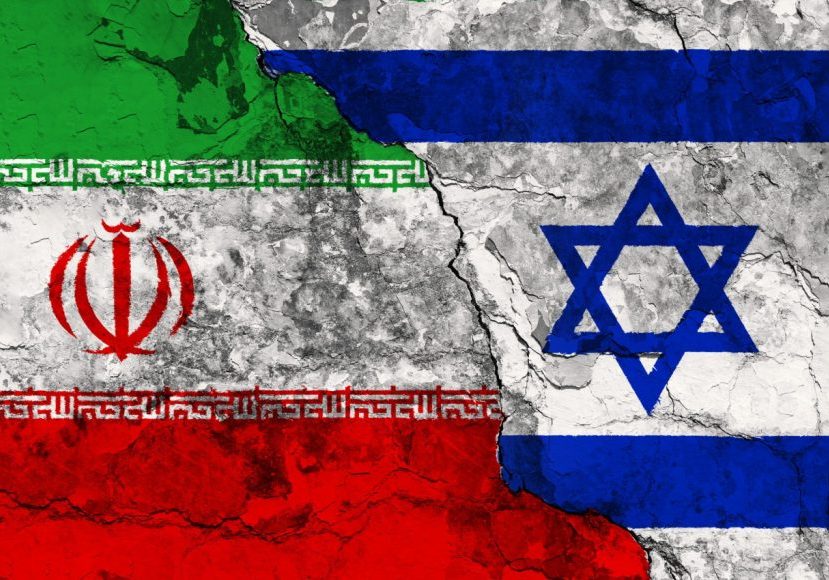IN THE MEDIA
Annapolis critics ignore genuine peace efforts
Dec 7, 2007 | Adam Frey
Adam Frey
The Age – December 7, 2007
At last month’s Annapolis peace conference – attended by more than 40 countries, including 16 members of the Arab League – Israel and the Palestinian Authority (PA) successfully renewed peace negotiations after years of inactivity. Apparently that is not enough for Antony Loewenstein and Michael Shaik, who labeled the new process a complete failure before the first working groups are even scheduled to meet. (“No Peace in Israel-Palestine”, The Age Online, December 5, 2007). But it’s their analysis, not the parties’ joint statement, that is completely divorced from reality.
Loewenstein’s and Shaik’s argument, that the PA satisfied all its obligations prior to the conference but Israel did not, is false.
PA President Mahmoud Abbas’ limited actions against Hamas were motivated by his own government’s survival, not any supposed Israeli precondition. It is no coincidence these measures were taken only after Hamas’ June coup, which violently forced Abbas and his Fatah faction out of the Gaza Strip. And though sending security forces to combat terrorists is commendable, this is one of the PA’s previously unfulfilled obligations under the 2003 Road map. Moreover, sending PA security forces solely into Nablus is hardly enough whilst Fatah-members plot Israeli Prime Minister Ehud Olmert’s assassination and these same forces kill an Israeli civilian in a random drive-by attack on the very eve of the summit.
Attempting to shore up Abbas’ standing with his public, Israel took several “good will” measures in advance of the conference. Israel released several hundred Palestinian security prisoners, transferred millions of dollars in tax revenue, and lifted dozens of security roadblocks.
Loewenstein and Shaik ignore these efforts. Instead, they assume Israel’s current intentions based on a comment by a former Israeli prime minister who last served in 1992. By the same reasoning, the PLO’s 1974 “Phased Plan” for Israel’s destruction would be proof of the PA’s current strategy. After all, former PA Chairman Yasser Arafat cited the first prong of the plan to defend signing the 1993 Oslo Accords.
Current intentions are better judged based on what the respective leaders are saying – and doing – today. On that basis, it is hard to conclude the Israeli government is not genuinely interested in ending the conflict.
In his speech to the conference, Olmert acknowledged the suffering of Palestinian refugees and pointed to that suffering as “one of the deepest foundations which fomented the ethos of hatred towards [Israelis].” In empathising so dramatically with Palestinian refugees, Olmert spoke directly to one of the Palestinians’ core concerns.
After the conference, Olmert voiced his concern that Israel would be “finished” if efforts toward a two-state solution failed. This is not the language of an Israeli government seeking to perpetuate the current situation.
Unfortunately, the same effort is not apparent from the Palestinians. Immediately after Abbas said all the right words at Annapolis, PA-controlled media broadcast maps of Palestine stretching from the Jordan River to Mediterranean Sea, completing omitting Israel. This is not the way to prepare the Palestinian public for two states living side by side in peace.
Similarly, Abbas and senior PA officials refuse to recognise Israel’s right to exist as a Jewish state and insist on an unlimited “right of return” for Palestinian refugees that would negate Israel’s Jewish character. Trying to justify this position, PA chief negotiator Saeb Erekat absurdly argued that no other state in the world links its national and religious identities. Of course, many do exactly that, including Erekat’s PA, where Islam is the official religion, and many other Arab and Muslim states.
The uncompromising demand for right of return has been echoed by Saudi Arabia, whose delegation at Annapolis would not even walk through the same doorway as the Israelis much less shake Olmert’s hand. This inflexible stance is indicative of the “take it or leave it” Saudi peace plan: Israel must completely concede every issue, without negotiation, and only then will the Arab states talk about treating Israel like it actually exists. Not quite the generous offer that Loewenstein and Shaik suggest.
But for Israel, Palestinian and Arab willingness to recognise it as a Jewish state represents the true end of the conflict. Without it, Israelis will remain convinced that the conflict is not about what happened in 1967 but what happened in 1948. In other words, it’s not about Israel’s borders, but its very existence.
Israel’s concerns are warranted given the response to its most recent attempt to trade land for peace. In 2005 Israel completely withdrew its military and all settlers from the Gaza Strip. Rather than achieving security, Israel has been rewarded by a daily barrage of rocket attacks launched from the very territory it vacated. These attacks have only increased since Hamas took control over Gaza. Given Israel’s complete withdrawal, what possible justification can be conjured for such attacks?
Indeed, it is on the situation in Gaza that Loewenstein and Shaik are the most disingenuous. They lament the effects of isolating Hamas but omit its cause – namely Hamas’ rejectionist policies. Hamas continues to call for Israel’s destruction and daily attacks on innocent Israeli citizens are launched from territory it controls. Even the PA – in addition to the US, EU and UN – supports isolating Hamas.
Would Loewenstein and Shaik demand any other country keep open its border under similar circumstances? And yet Israel has reaffirmed its commitment to continue providing humanitarian supplies to Gaza and to avoid creating a humanitarian crisis there.
Annapolis produced the best that could be expected right now: the renewal of a serious negotiating process alongside implementation of confidence-building measures. The parties were too far apart for anything else. And although real obstacles remain, it is way too early to be declaring it a failure.
Adam Frey is a Policy Analyst at the Australia/Israel & Jewish Affairs Council
Tags: Israel











